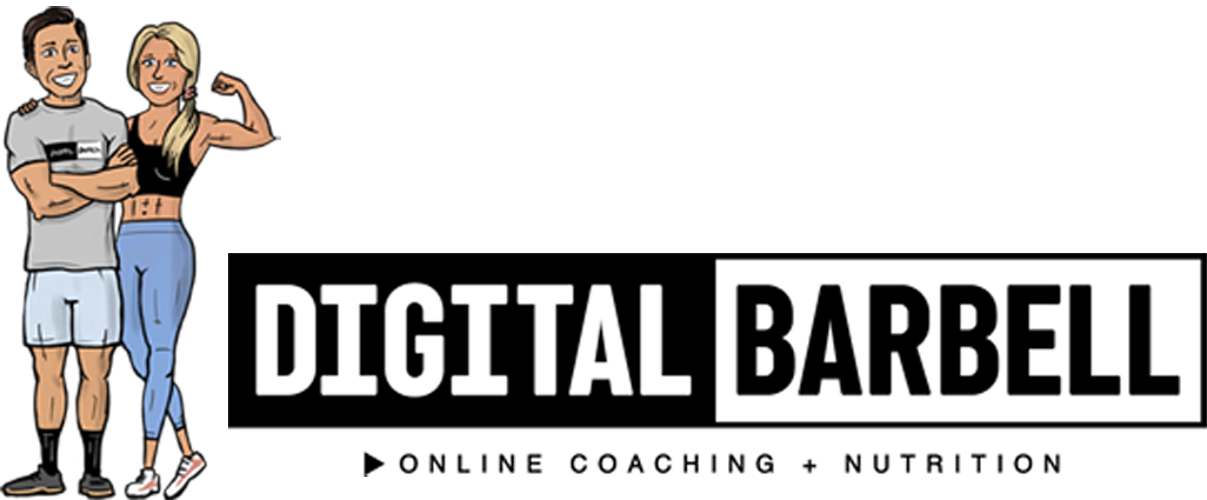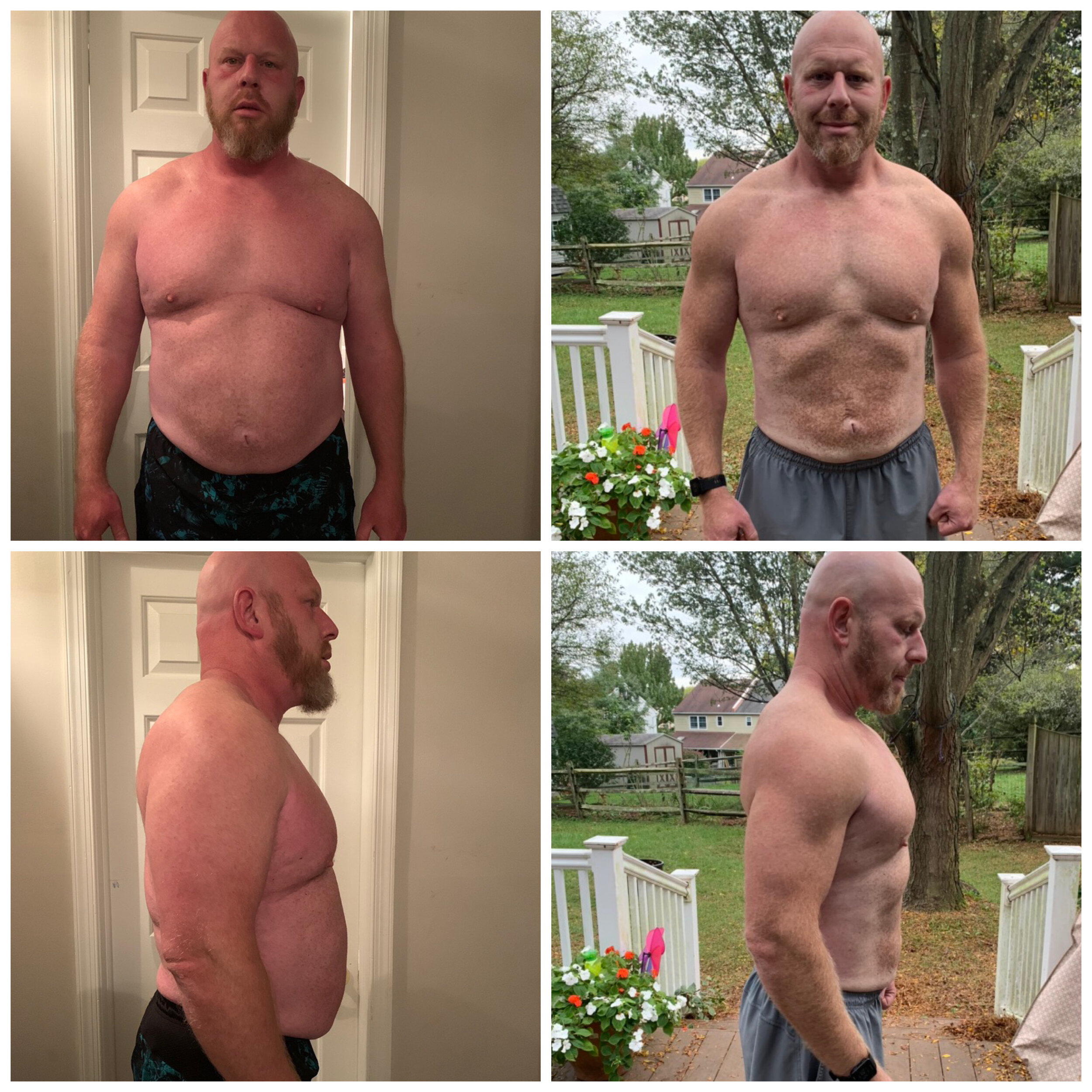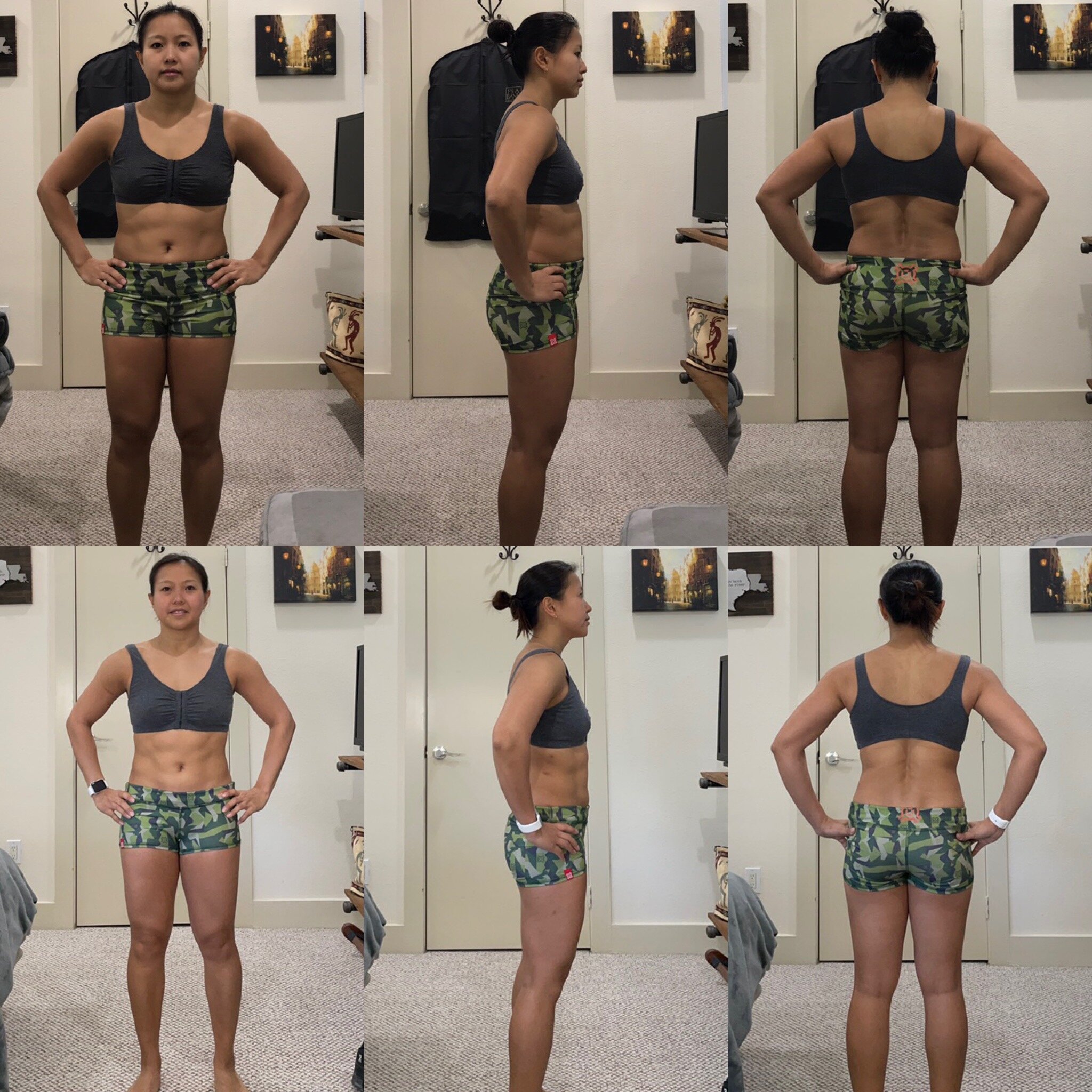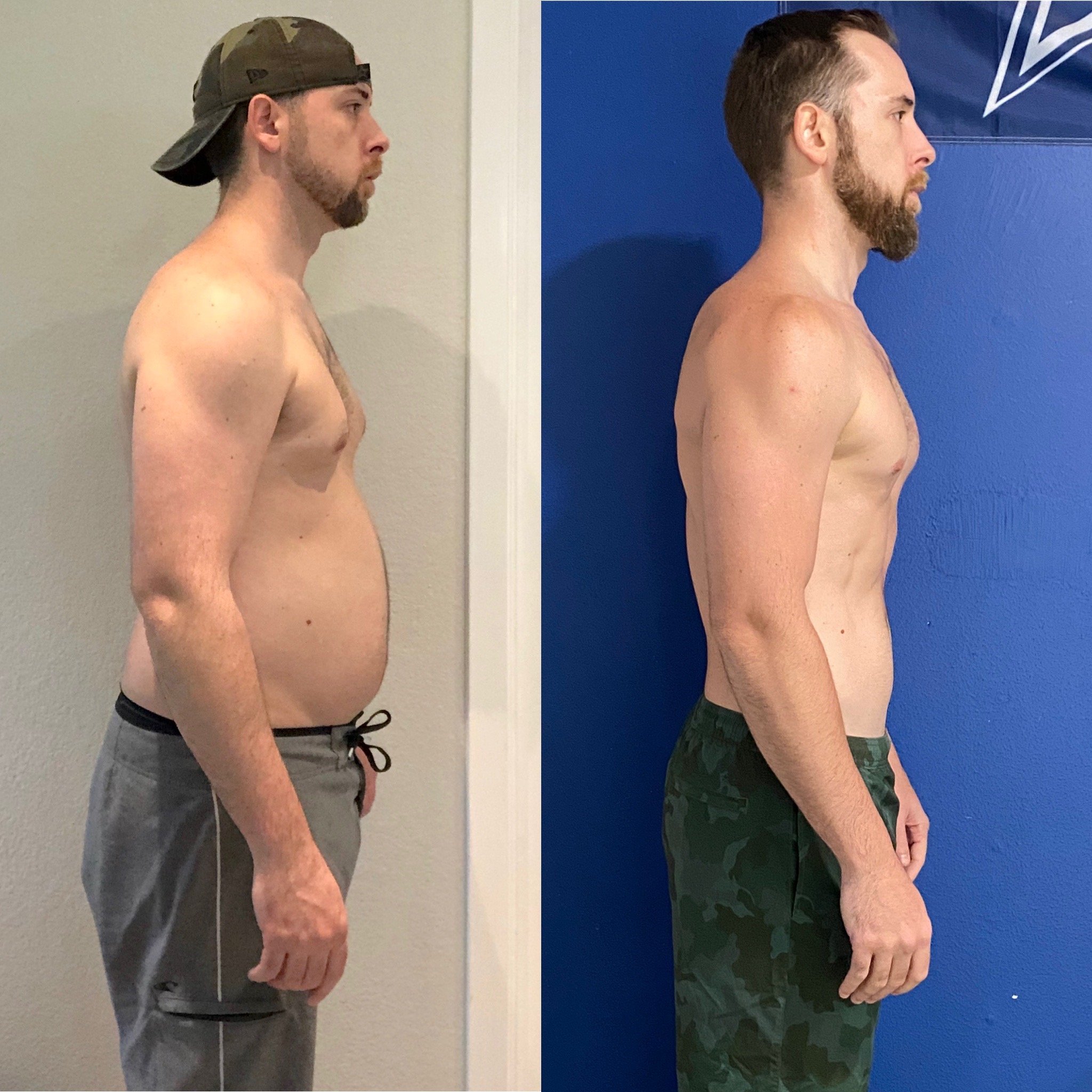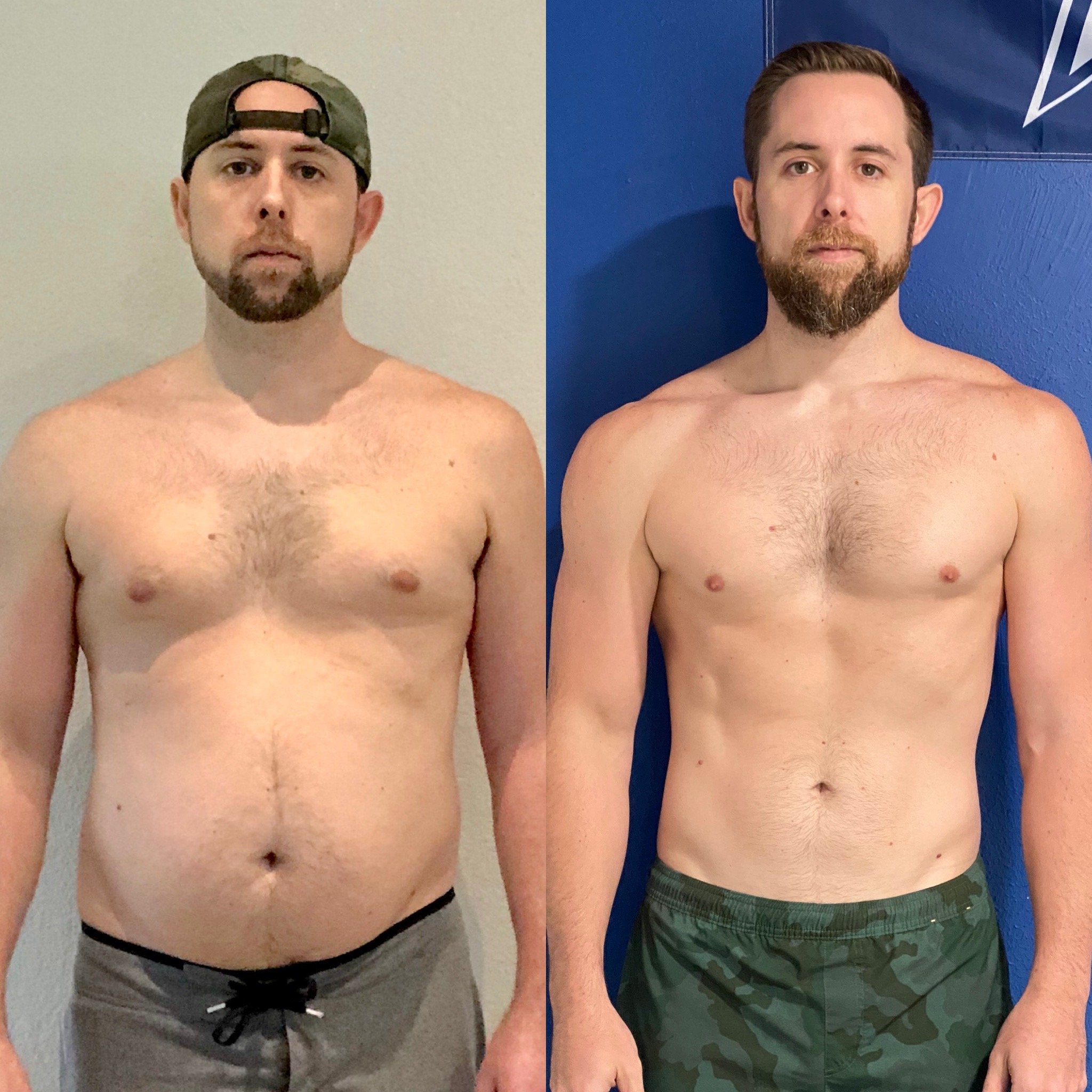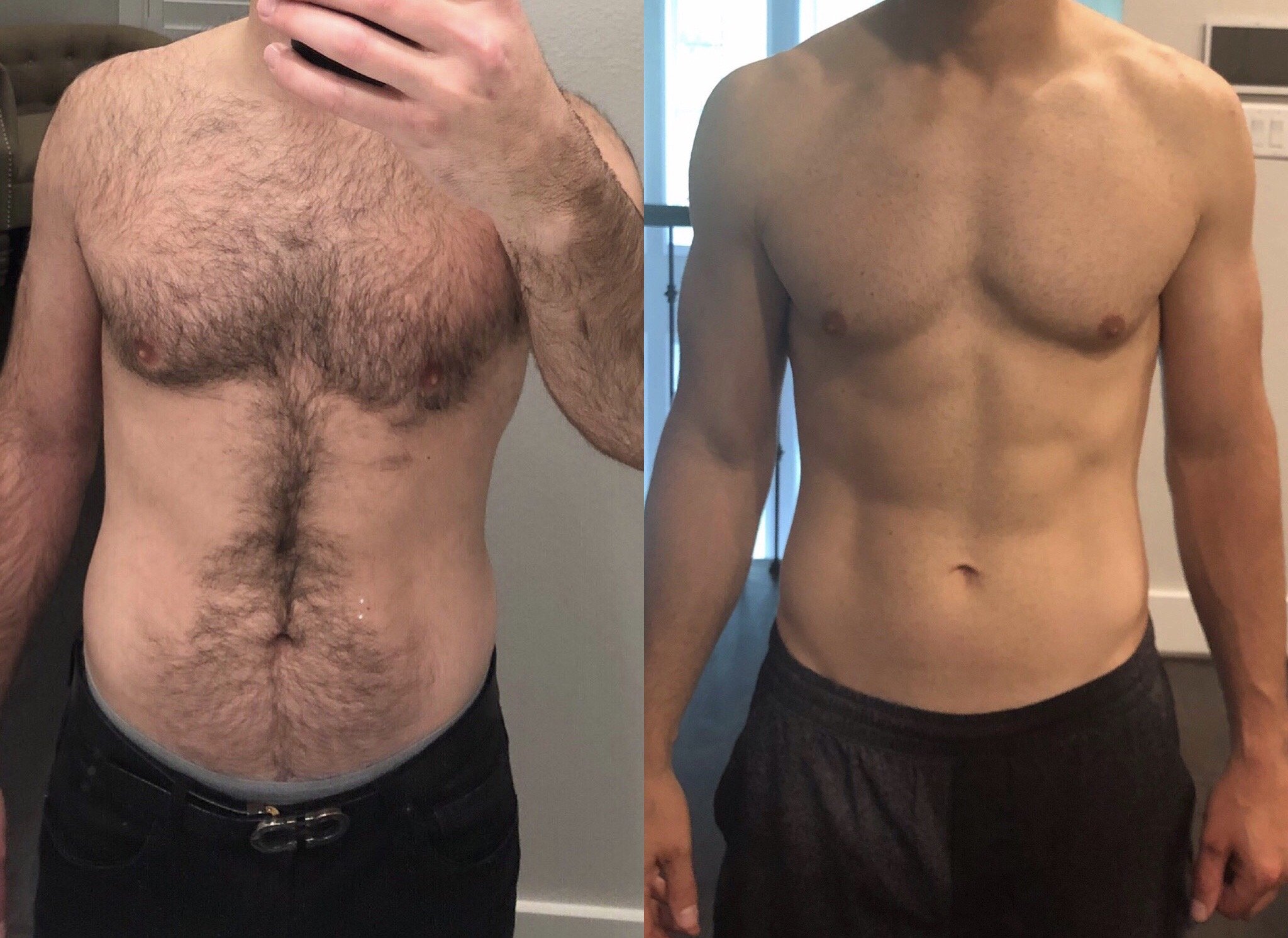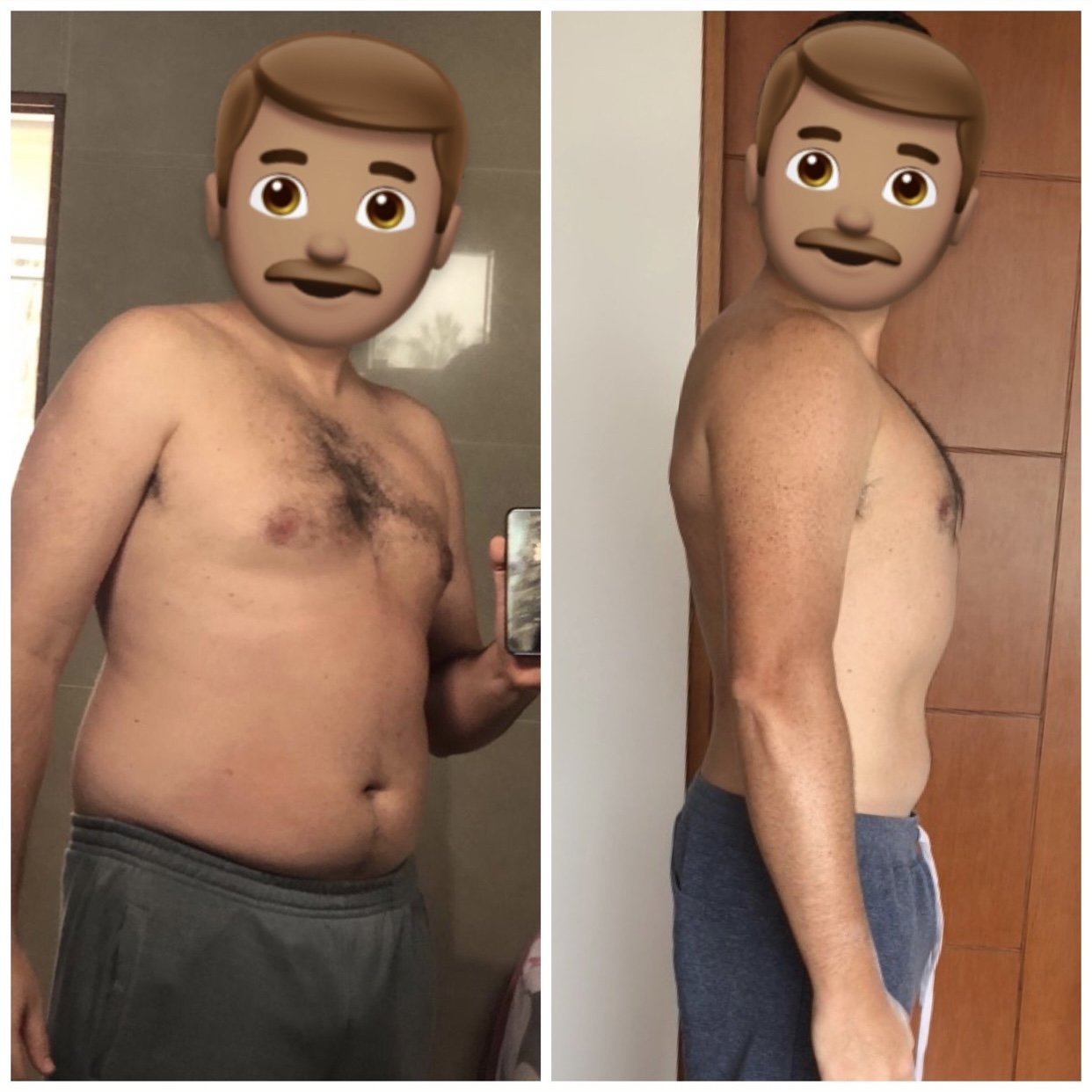What Are Newbie Gains and How Long Do They Last?
If you’re new to lifting weights or you’ve gotten out of shape, it’s your lucky day. You found the right blog article.
You’ve hit the lottery and are eligible for one of the greatest secrets of training.
I’m talking about “Newbie Gains”.
In this article you’ll learn how to maximize your newbie gains period, but we’re also going to give you a FREE program to follow to ensure your success.
Download the 5-Week Program below, start it ASAP, and enjoy rapid progress!
Back to newbie gains…
Before you get too excited and think that you’re about to get something for nothing, let me explain.
You’re still going to have to work hard in the gym and follow the principles laid out in this article. You can’t put your nutrition on auto-pilot, and most importantly, it’s still going to take time and consistency to get results.
But the good news is that if you’ve never trained with weights or haven’t followed the right program, you’re going to experience progress faster than at any other time during your training “career”.
Even if you HAVE trained with weights before, if you were doing the wrong program with the wrong exercises at the wrong intensity, you still might be able to cash in on some of these quick gains.
Like these guys:
Digital Barbell Members Mike and Marshall
What Are Newbie Gains?
Newbie gains are the phenomenon that happens when a beginner to weight lifting starts following a well-designed program consistently, and sees rapid progress in muscle growth and strength gains MUCH faster than at any other time in their training career.
Remember when you got into a new relationship and everything about that person seemed perfect? Nothing they did annoyed you. Choosing a restaurant for dinner was simple, and you were pretty sure they never had a bad hair day?
That’s the “newbie gains” portion of the relationship.
In the newbie gains portion of your lifting journey, you should be getting stronger nearly every single workout, and you should be seeing changes in the mirror monthly at a minimum.
There are ALWAYS genetic outliers on both ends of the spectrum. Some people will be HYPER responders, and others won’t respond as well. That’s just the way the cards fall, so choose your parents wisely!
Who Can Make Newbie Gains?
Why has God shined down favor and poured out these muscular riches on newbies?
In short, when you go from NOT lifting weights to lifting regularly, you’re giving your body a completely new stimulus.
To understand this more and how it translates to the topic at hand, we need to remember how muscle grows in the first place.
When you train with weights, you break down your muscle fibers. When you eat enough protein, you send the anabolic signal to your muscles to rebuild and adapt. This is called muscle protein synthesis.
When you’re NEW to training, you are extra sensitive to this effect, even in sub-optimal training conditions. This hypersensitivity to protein is the main driver of this great progress that we can make as a beginner. You can see that your nutrition is a big part of this, and it’s important to get it right if you want to cash in on your newbie gains.
As if this wasn’t enough good news for the beginner, these muscle protein synthesis rates STAY elevated for much longer (up to 2x as long) vs. trained lifters.
What that means to you is that your body is spending even more time building muscle after a tough workout. #winning
How Can I Make Newbie Gains?
By now you’re probably wondering how you can cash in on all of this supercharged muscle and strength goodness. The truth is, if you aren’t training with weights and following a good program right now, you need to start.
A great FREE place to start is our 5-Week, Arms, Abs, and Glutes Program! Download it for free below.
Since you’re trying to grow muscle, there are exercises that you need to include in your program to make the most of this time.
What are they? The big compound lifts: squats, deadlifts, overhead presses, and bench presses.
These are multi-joint, multi-muscle exercises that use a bunch of muscles all at once, and they can be loaded heavily as you get stronger and stronger.
If you neglect these, you’re missing out. Trust us.
If you really want to optimize things (and you should), you should be doing these lifts with 70-85% of your estimated 1 rep max.
Start simple: 3 sets of 5. Add weight to the bar each workout for as long as you can. You’ll be amazed at your progress.
What Exercises Are Best For Newbie Gains?
What about supplemental exercises outside of the big compound lifts?
The most recent research shows that you should be also shooting to hit each muscle group (like your shoulders, legs, arms, chest, and back) with 10-20 “hard sets” per week.
A hard set is pretty much what it sounds like: a set with enough reps, and enough load that you come just short of failure. We wrote a bunch more about “hard sets” in this post.
Muscle Growth 101
If you want to make your muscles grow, your training needs to be biased in that direction and it needs to have a few key components and considerations which we will dive into today.
Don’t try to get all of these hard sets for the week done in one workout. Research shows that spreading it out across 2-3 workouts is ideal. Another reason to have an experienced coach write your workout program.
Not only that, you should be writing down the weights that you’re using and the number of reps that you’re getting, so that you can not only keep track of your progress but also use it as motivation to continue making your workouts more and more challenging.
THAT is how progress happens, and that is how you can take advantage of your newbie gains.
This is one of the main reasons that we coach our clients through an app that lets them record their results, and lets us track their progress.
How Does Nutrition Affect Newbie Gains?
Newbie lifters usually come in two forms: under-muscled and overweight or under-muscled and underweight.
We take a different strategy with each when it comes to their nutrition, but there are some overlapping principles.
We cannot ignore ENERGY BALANCE - The relationship between the number of calories you eat and the number of calories you burn. This is the main variable to manipulate when it comes to fat and muscle loss/gain.
In the case of our under-muscled, underweight newbies, we need to get them to eat more total calories.
We aren’t concerned with fat loss with this person. Instead, we’re focused on muscle building, and we need calories to do that.
More specifically, we need EXCESS calories to do this. We need to figure out what their TDEE (Total Daily Energy Expenditure) is, and then we need to give them 10-20% more calories than that on a daily basis.
Here’s our client Sawyer who’s currently recomping.
Notice how much more developed his arms, back, and shoulders are in the bottom photos? Oh yeah, he’s also gained 8lbs of muscle, along with losing the fat hiding his abs on his stomach. And we’re just getting started!
In the case of our under-muscled but overweight newbie, we need to get them eating at their TDEE or less (10-25% depending on how much fat they currently have). Doing this can help them have a “recomposition” effect in which their body weight drops slowly while they lose fat and build muscle simultaneously.
With both types of newbies, we need to pay attention to a couple of other variables when it comes to their nutrition.
If you’re feeling overwhelmed at this point and you wanted a pro to help guide you through this exact process, let’s talk. Click the button below and let’s see how we can help. No pressure.
Remember how we said that muscle protein synthesis rates are elevated in new trainees? We need to cash in on that potential by having them eat enough amino acid rich protein. Why amino acid rich? Because not all protein sources are created the same. We talk about that in this article about being a vegetarian.
Muscle Building as a Vegetarian
Are you a vegetarian or thinking about becoming a vegetarian but also want to build and maintain muscle?
Has someone told you that it’s impossible to do?
Let’s set the record straight.
As far as baseline recommendations for protein intake, research shows that eating between .8 and 1.2g of protein per day per pound that you weigh puts you right in the sweet spot. This might sound like a lot to you if you’re eating a fairly low protein diet currently, so we made these for you:
https://www.instagram.com/p/BySdda3gb7K/
https://www.instagram.com/p/ByAcHQqgXYh/
We love protein for all of its benefits, but there are other things that help newbies (and everyone else) build muscle too.
Are Carbs Good For Building Muscle?
Yep, research shows that when we combine carbohydrates with protein, it causes an increased effect in muscle protein synthesis. To the newbie lifter, that’s just the icing on the cake!
Another benefit of eating enough carbs is that they provide the fuel that you need for your workouts.
Lifting weights is mostly a glycolytic effort. That means that you burn carbs almost exclusively while training, and you even tap into your carbohydrate reserves (called glycogen) in your muscles and liver during very intense efforts.
Eating enough carbs is imperative to productive training, and that’s why we rarely recommend a low-carb diet for anyone with an interest in building muscle or performance. We talked more about that HERE in our article on low-carb diets.
If you’re interested in a shortcut, you’re in luck! We built a free, comprehensive guide to help you set your target calories, protein, carbs, and fat.
Get it HERE for free.
What Kind of Results Should You Expect During Your Newbie Gains Phase?
There are always outliers at both ends of the spectrum in everything, but I want to give you an idea of some typical progress that you can expect during your newbie gains phase.
Genetics plays a role in how you develop as you lift and how much muscle you can gain in your life. Dr. Casey Butt is one of the leading researchers in this field, and has developed a formula to predict what your potential might be over the long term based mostly on the size of your skeleton. Check it out here.
But what can you expect during the first year of lifting assuming you’re doing most of the things mostly right?
Research and opinions vary as to the exact amounts of potential muscle that you can gain during the newbie gains stage, but it’s safe to say that most males can gain 15-25lbs of muscle and most females can gain between 10 and 20lbs of muscle during their first year.
Those numbers are meant to be pounds of actual muscle, not total weight. When we’re eating more calories than we need (surplus) we will gain both muscle and fat, but we can skew that ratio toward muscle by continuing to train with weights.
Newbie gains don’t typically happen in a perfectly linear manner either. If you were to chart your progress on a graph, it’s more likely that you’d see the largest uptick in progress right off the bat (maybe up to 50% of your progress within the first few months) and then see your progress continue at a more gradual pace.
There isn’t a switch that magically flips when your newbie gains phase is over; it’s a more gradual thing. You will continue to make progress over time, even when you become an intermediate and advanced lifter. It just happens at a slower pace.
If you’re committed, and consistent and really want to make muscle growth a priority, you can keep making gains by continually staying in a caloric surplus and progressively increasing the weights that you’re lifting.
If you gained 20 lbs of muscle during your first year, you might be able to gain about half of that (10lbs) in your second year and half of that (5lbs) in your third year.
How Long Do Newbie Gains Last?
The fact that your progress has slowed down doesn’t necessarily mean that you’re doing anything wrong.
As you train, your body is in a constant cycle of adaptation. Your body will get better and better at adapting the more that you call upon it to do so.
Essentially, the same stimulus (lifting) has a blunted effect gradually over time. This is called the repeated bout effect.
Continuing to focus on challenging yourself in the gym and giving your nutrition extra attention can help slow the decline of your progress as your newbie gains are fading.
At some point in this journey of gaining muscle, it’s not uncommon to get to a point where you look in the mirror and decide that you want to spend some time losing fat to reveal some of the definition in the muscle mass you’ve gained.
This is how the “cut and bulk” cycle was born.
What Is Cutting and Bulking?
When you cut and bulk, you spend a period of time in a caloric surplus building muscle, and then you spend a period “cutting” body fat by dropping calories into a deficit (fewer calories than you’re burning).
Picture a wave that goes up and down, but gradually goes up more than down over the long term.
This is the approach that we take personally and with most of our clients who have the goal of muscle growth & being lean and healthy.
How Can You Maximize Newbie Gains?
You don’t NEED anything extra as far as supplements go to take advantage of newbie gains. BUT, there are a couple of things that you can do to enhance the process.
First, take creatine monohydrate.
It’s proven to increase strength and muscular endurance with almost no risk or side effects. Take 5g every day. It’s that simple. Find out everything you need to know about creatine and creatine timing HERE.
Use protein supplements like a high-quality whey protein or a vegetable-based protein powder made from pea or soy protein isolate.
Notice that we said protein “supplement”. If you can get enough protein daily (.8-1.2g/day per lb that you weigh) from your daily diet of food, that’s ideal. However, if you’re falling short, rely on these supplements to help you reach your goals.
There are other supplements that can help, but these will get you 99% of your results. If you want to read more about the supplements that we recommend check out our trusted product recommendations HERE.
IN SUMMARY
Train smart and train hard during your newbie gains phase. Add weight to the bar, and add reps as quickly as you can.
Enjoy the extra sensitivity that your body has to training during this time.
Eat adequate calories, protein, and carbohydrates to fuel muscle growth and productive workouts.
Don’t get discouraged when progress slows. Keep striving to reach your potential.
Consider “bulking and cutting” if you want to ultimately be large AND lean.
Use creatine to increase your strength, and use protein supplements to fill in the gaps in your diet.
Happy gaining, newbies!
If you have a friend who would like this article, please share!
All our best,
Jonathan & Blakley
